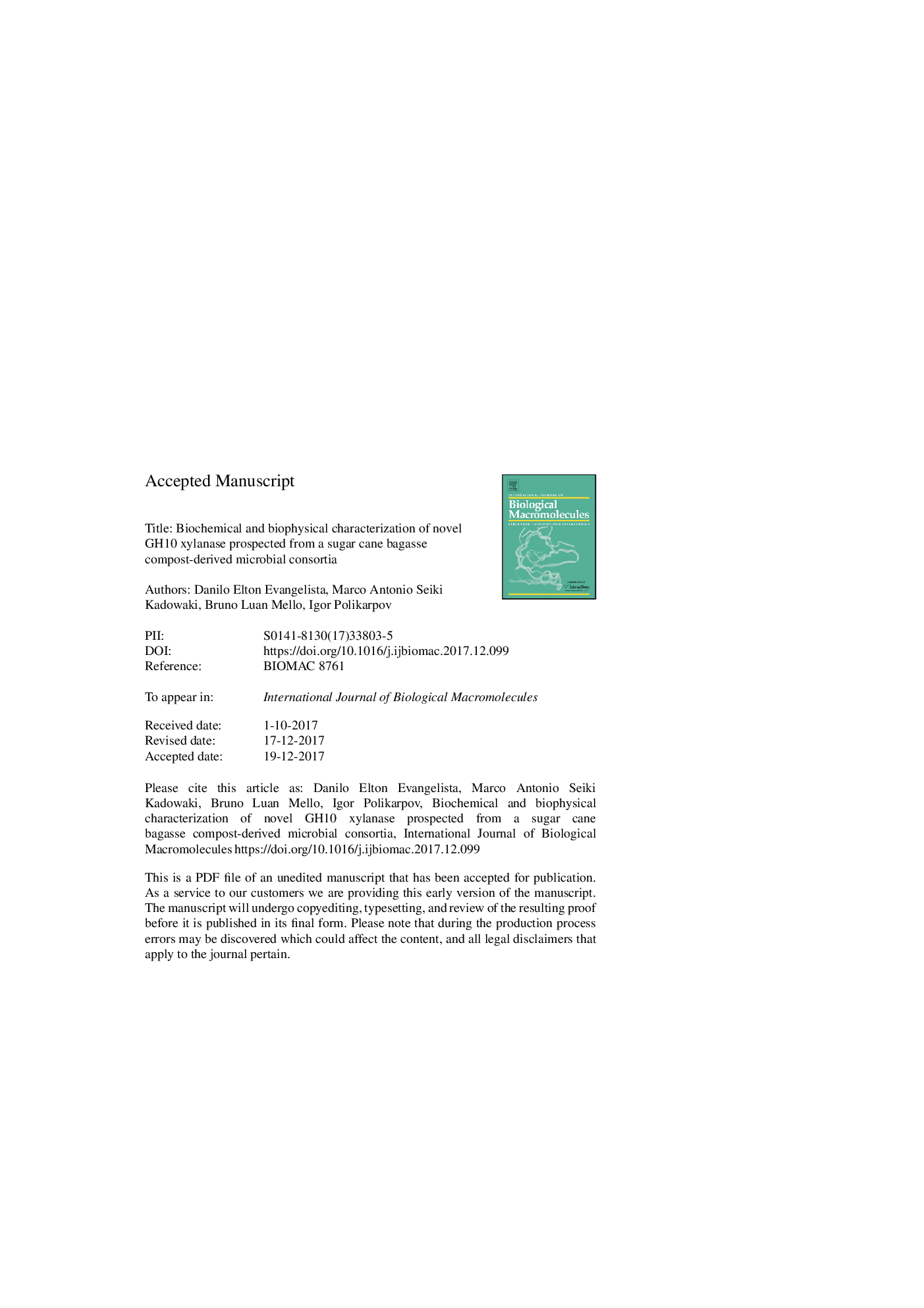| Article ID | Journal | Published Year | Pages | File Type |
|---|---|---|---|---|
| 8328385 | International Journal of Biological Macromolecules | 2018 | 38 Pages |
Abstract
Environmental issues are promoting the development of innovative technologies for the production of renewable energy and “green products” from plant biomass residues. These technologies rely on the conversion of the plant cell wall (PCW) polysaccharides into simple sugars, which involve synergistic activities of different PCW degrading enzymes, including xylanases; these are widely applied in food and feed sectors, paper and textile industries, among others. We cloned, expressed and biochemically characterized a novel xylanase (Xyn10) from the GH10 identified in a metatranscriptome of compost-derived microbial consortia and determined its low-resolution SAXS molecular envelope in solution. Our results reveal that Xyn10 is a monomeric flexible globular enzyme, with high stability with a broad pH range from 4 to 10 and optimal activity conditions at pH 7 and 40â¯Â°C. Only 10% of activity loss was observed after the enzyme was incubated for 30â¯h at 40â¯Â°C with a pH ranging from 5 to 10. Moreover, Xyn10 maintained 100% of its initial activity after incubation for 120â¯h at 40â¯Â°C and 51% after incubation for 24â¯h at 50â¯Â°C (pHâ¯=â¯7.0). Xyn10 shows endocatalytic activity towards xylan and arabinoxylan, liberating xylose, xylobiose, 1,2-α-d-methylglucuronic acid decorated xylotriose, and 1,3-α-l-arabinofuranose decorated xylobiose and xylotriose oligosaccharides.
Keywords
Related Topics
Life Sciences
Biochemistry, Genetics and Molecular Biology
Biochemistry
Authors
Danilo Elton Evangelista, Marco Antonio Seiki Kadowaki, Bruno Luan Mello, Igor Polikarpov,
